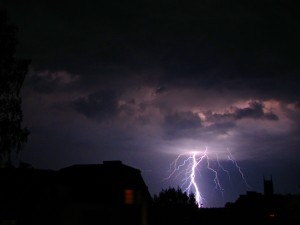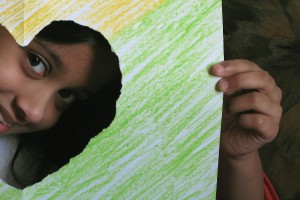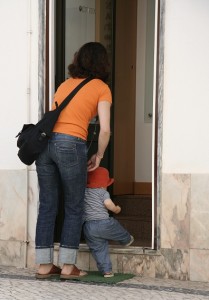
Image courtesy of Jesse Therrien via stock.xchng
I’ve thought sometimes about teaching writing, mainly because it comes easier to me than to most people I know (in contrast to the famous quote).
I am not above or apart from wanting to to be affirmed by my culture, and being a part of a culture that affirms through salary, I’m keen to see my abilities contribute to my income, whether or not I need that money to live.
One of the common writing prompts (believe it or not) is Write what scares you.
This may come as a surprise to non-writers, or not-yet-writers but it is very reasonable advice.
The ultimate goal of writing is shared-consciousness.

Image courtesy of nh313066 via stock.xchng
Yes, really: The goal the goal of most print is to make the thoughts of the writer the thoughts of the reader.
Fear is deeply rooted in us, and is a commonality among all healthy (and even most unhealthy) minds.
By writing about what we fear, we invite others to see us, and to be known, even if the reader is someone we will never meet, because there will be that person whose fear matches mine, and maybe they’ve never found the words for it, so it’s remained a shadow.
Or maybe they had the words, but they felt so alone in this place that the words were only a reminder of their isolation and shame.
In this latter case, the writer, whom they’ve never met, shows the reader s/he’s not the only person who is broken in this way, and that crack in the world’s armor might let in a chink of light and offer freedom.
Because, especially as a believer, our goal is to not remain afraid.

Image courtsy of Belovodchenko Anton via stock.xchng
What am I Afraid of?
The question popped into my head, and an answer jumped to meet it:
I am afraid of loving imperfection.
Among my many contradictions are
a) I am good at loving, and
b) I am good at seeing.
On my good and healthy days, I am glad for this combination, because b without a would probably make me a jerk.
On my weak or confused days I worry that observers will assume a means the absence of b, and since both parts are important to the way I see myself, I wrestle with how I do both, even while I wonder how to care less what any observers may interpret.
In one of my conflicted moments I told my mom, “I know I’m doing the right thing by loving on [name], I don’t know what to say to [those other Christians] who seem to be focusing on that person’s sin.”
Unspoken, perhaps unconscious, in this confession was the fear that my insight, if not my godliness, would be called into question. And my mom’s matter-of-fact rebuttal deflated all my related anxiety:
“If you are rejected for being a friend of sinners, you are in good company.”
Imperfect Company
What a moment’s contemplation showed me was that my fear of loving the imperfect is a fear of being imperfect.
Both my mom and the latest doctor I saw (just this spring, and no, she couldn’t tell me anything I didn’t already know. {groan}) scoff at that word, perfect.
Both of them said (verbatim!) “Wouldn’t that be BORING?!”
And both times I was speechless, because I wonder how they can really think that.
NO it wouldn’t be boring! I could finally relax.
Yeah, fine. Analyze the snot out of that last sentence.
I don’t genuinely expect perfection from anyone, even myself (anymore), but I’ve never seen that acceptance of imperfection as a reason to stop striving. Who pushes for less-then perfect?
And that’s where I started to make sense of this fear. (If you didn’t make the jump with me, no worries, just start here:)
My fear of others’ imperfection is my fear of having even more of a gap to fill.
50% x 50% = 25%
Even further from 100%!
Now I see more clearly: I am imagining the work I have left.
By aligning with someone else I take on their weakness, become responsible for it. More is added to the to-do list that I must make happen on my limited strength.

Image courtesy of Mateusz Stachowski via stock.xchng
This is why the imperfect is so frightening: not because I expect more of them (because I know that wouldn’t be fair) but somehow I still expect more of me.
I know well enough the amount of effort I expend in not-sinking. Add to that somebody else’s something I have to keep afloat, and I cry out It is more than I can bear! How can you ask me to do the impossible?
And sometimes in the storm I hear, You already are.
And sometimes I hear that I’m carrying more than I need to.
God does not depend on human exhaustion
to accomplish his will.
God often gives us strength beyond our natural resources to accomplish his will. If we are out of strength, that could be a sign we’re working on something that isn’t our assignment.
How do I stop being afraid? Maybe by letting go of a burden too big for me to carry.
I must choose a place where my limits are a gift, the means that allow me to rest.
And how do I find that place? Two questions help:
- What can I do?
- What can I keep on doing?
What I can do is boggling and mind-blowing and amazing.
And what you can do, too.
But that awesomeness is not necessarily sustainable. What I can do is no longer the primary question, unless it is a special situation with a defined beginning and end.
What is more applicable is Question-2.
It is treating each day as if it’s my forever.

Image courtesy of Janusz Gawron via stock.xchng
Am I living in such a way, that if nothing ever changed, I would be able to continue? Would I be able to be happy, and have something to share with the people closest to me? The people I love?
We are all imperfect.
We all fear.
And somehow it is through that fear and that imperfection that we are drawn together.
I don’t know if I will ever actually teach writing, but I know I’m learning. And the cool thing to me, is that the more I learn about writing, the better I get at living imperfectly, and being less-afraid.











 This
This


 One of the main dichotomies I run across is the war between Feeling and Thinking (shorted in many discussions to F & T).
One of the main dichotomies I run across is the war between Feeling and Thinking (shorted in many discussions to F & T).